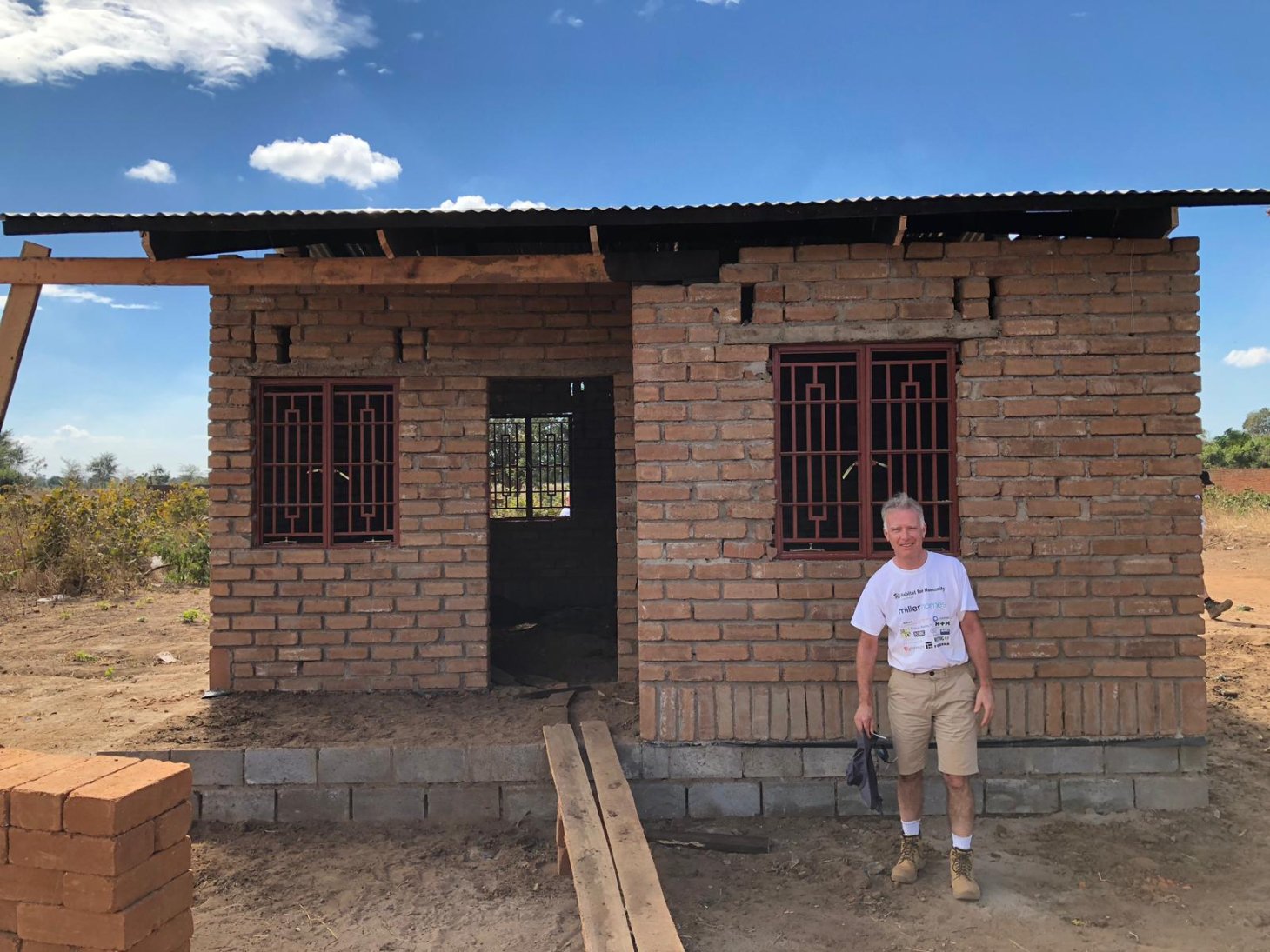
Miller Homes has been supporting the work of Habitat for Humanity since 2016 and when asked to join in the 2019 effort, H+H was delighted to do so, with Neil volunteering to be the company’s representative.
It’s not all been plain sailing by any means, with Neil cycling the length of Britain on his own in the spring to raise funds (link to earlier story).
The effort culminated in a week-long trip to Malawi to build basic homes for some of the least affluent villagers on earth. The team of staff from Miller Homes and some of its suppliers had the task of building three houses in a week.
They are basic structures built out of local bricks, but they are a great improvement on the homes they replace. Working with local people, learning the stories of the families being re-homed was a humbling and rewarding experience for all of the volunteers:
“I hadn’t really experienced a third world country like this before” said Neil. “The conditions people live in certainly make you reflect on your own way of life and the things you take for granted.”
The houses built by the team are simple two and three room homes with no electricity, gas or running water. But they are safe, waterproof and much more robust than the mud brick houses they replace, enabling the structures to withstand the three-month rainy season.
It’s an educational experience for everyone involved and an opportunity to connect people from different parts of the world with hugely different life experiences.
“The housebuilding exercise is just one part of the overall project” observes Neil. “Ultimately all the fundraising is going towards larger infrastructure projects to really make a difference to the communities in Malawi.”
Keeping track of the project in photographs day-to-day, Neil certainly got some advice from colleagues on his block-laying technique. “We got faster as we went along: the final house was built in a fraction of the time it took us to build the first” said Neil, pointing out that not everyone on the team was a practicing tradesman.
The structure of the houses was completed by the volunteers, with the roof and interior finished by local tradespeople – we hope these homes will continue to provide a safe environment for the families for many years to come.
Would Neil recommend involvement in this type of volunteering? “Absolutely. The experience has certainly changed the way I think about charitable giving. Practical support, giving a hand up to people with very little, is a hugely rewarding thing to do.”
Part of the intention of this kind of exercise is to spread information about the work of the charity and how it can contribute the communities with which it is involved. Neil is helping to spread the word already: “my brother is a schoolteacher, so I am going into his school to talk to the children about the cycle ride and the project in Malawi.”
Hold onto your cycling hats, though, Neil might not be finished. Offered the same opportunity again, he would jump at it.